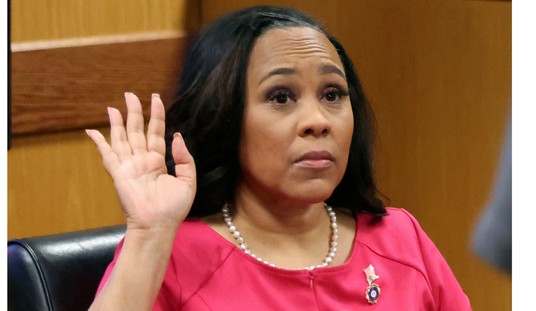When the draft of the health-care bill got leaked last weekend, I noted that the very first part of the legislation was a note that said they hadn’t figured out HIPAA compliance yet. A few people responded that the bill was a draft, not yet submitted to the House or Senate, even though the leak was obviously intentional. Now Keith Hennessey has taken a closer look at the Senate version of the bill — and it’s still incomplete in a critical area:
The employer mandate section from the leaked draft has been replaced with “[Policy under discussion]”.
A few inside friends confirmed my guess – they think this is a tactical move by the majority staff to try to relieve blowback from the employer groups: Chamber of Commerce, Business Roundtable, NFIB (the small business lobby), etc. Until it is otherwise demonstrated, I will continue to assume that the Chairman’s mark will include language that will roughly parallel that in the leaked draft.
Hennessey’s doing that for his analytical purposes, but that doesn’t excuse the sponsors of this bill from laying out the machinations in an open and transparent manner. In the current model of health insurance, employer-provided health insurance covers most Americans. Any mandates on employers would have a broad and almost certainly deleterious effect on compensation.
Even if one accepts the notion that government should have greater control of the health-care sector, this plan cannot be evaluated until all of its critical parts are published. “The dog ate my homework” isn’t good enough in this case. Either publish it all, or withdraw it.
Hennessey has more:
The bill gives the Secretary of Health and Human Services authority to limit premiums and profits of health plans by forcing plans to rebate to enrollees premiums above a certain margin.
Specifically, §2704(a) is the “Requirement to provide value for premium payments.” A health plan must report how much of their premium revenues are used for clinical services, how much for “activities that improve health care quality,” and how much for “all other non-claims costs.”
§2704(b)(1) then tells the Secretary to look at how much other health plans spent on “all other non-claims costs,” and based on that survey, set an allowable percentage for this category. Plans are then required to rebate premiums if they go above this amount. This is direct (but confusing) regulation of premiums and profit margins.
I found the labeling of this section interesting. It appears that this section will be the justification for the claim that this bill reduces health care costs. Loosely phrased, it appears their argument will be “We’re reducing health care costs by forcing plans to lower their administrative costs and profits.”
The people behind this plan intensely dislike the notion of health-care providers making a profit. The bill gives these people a lever to have government decide how much profit each insurer will be allowed to get from their business. Note that this has nothing to do with the quality of care provided, nor of the costs to the government. Literally, two insurers could charge the government the same amount of money for the same procedures and services, but if one is 20% more efficient than the other, the government will penalize the more efficient insurer.
How exactly does that improve health care and coverage? Instead of improving health care, this plan will encourage inefficiencies and waste.
I like this one the best, and call it the Joe the Plumber Plan:
States (through Gateways) shall redistribute premiums from plans with low-risk individuals to those with high-risk individuals.
This gives the people running Gateways a tremendous amount of power over health plans.
No one has to pay to cover their risk any longer. We all pay the same, whether we smoke or drink to excess, or play with dynamite as a hobby. It’s an extension of the “share the wealth” philosophy that Barack Obama likes, only in this case, it will deincentivize people from avoiding the risks in the first place.
Read all of Keith’s analysis, and be sure to keep an eye on his blog.








Join the conversation as a VIP Member